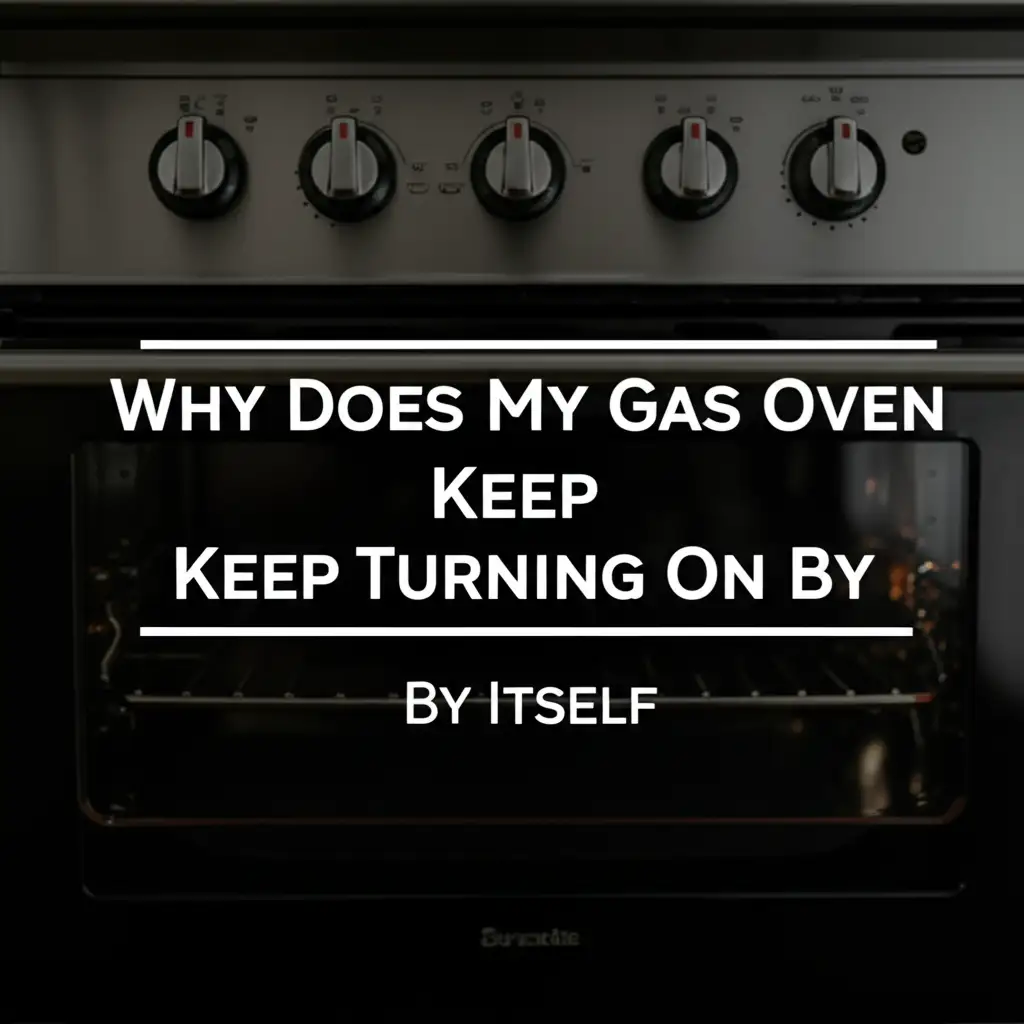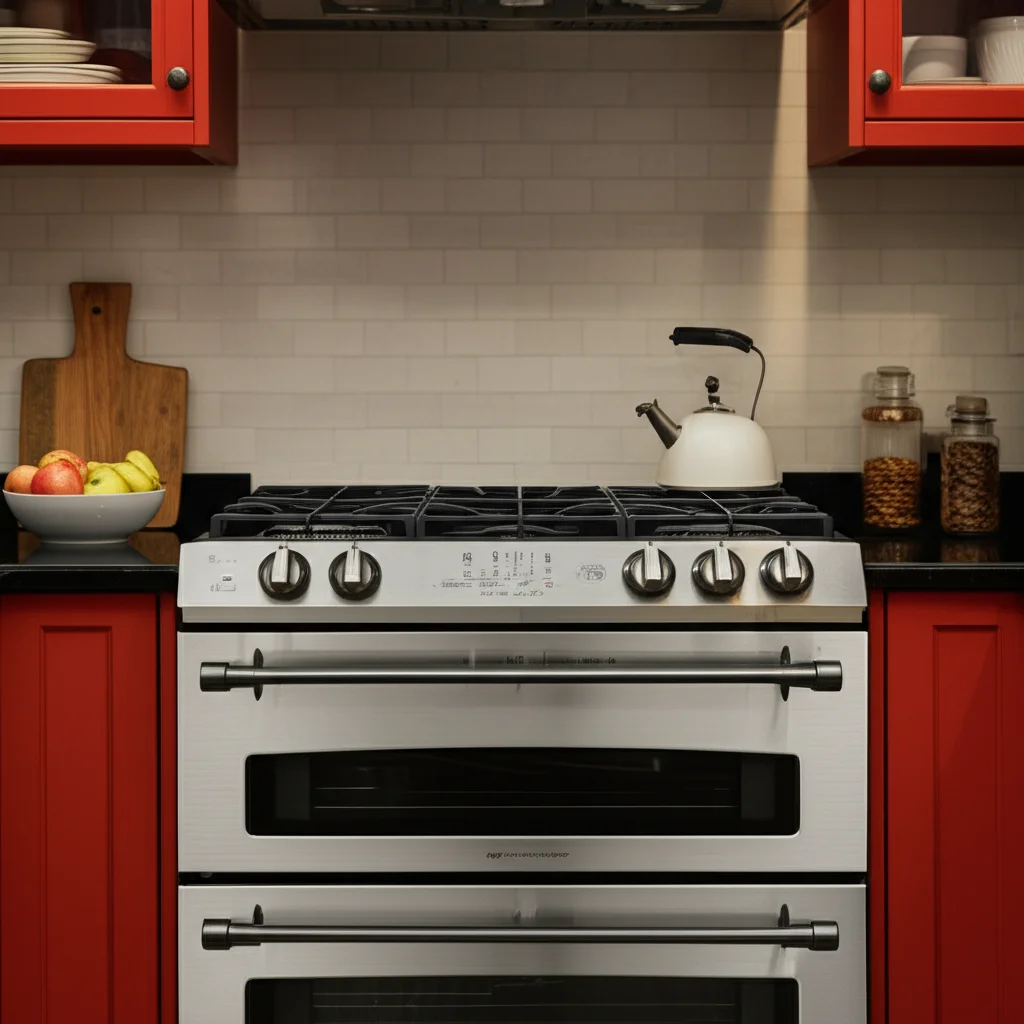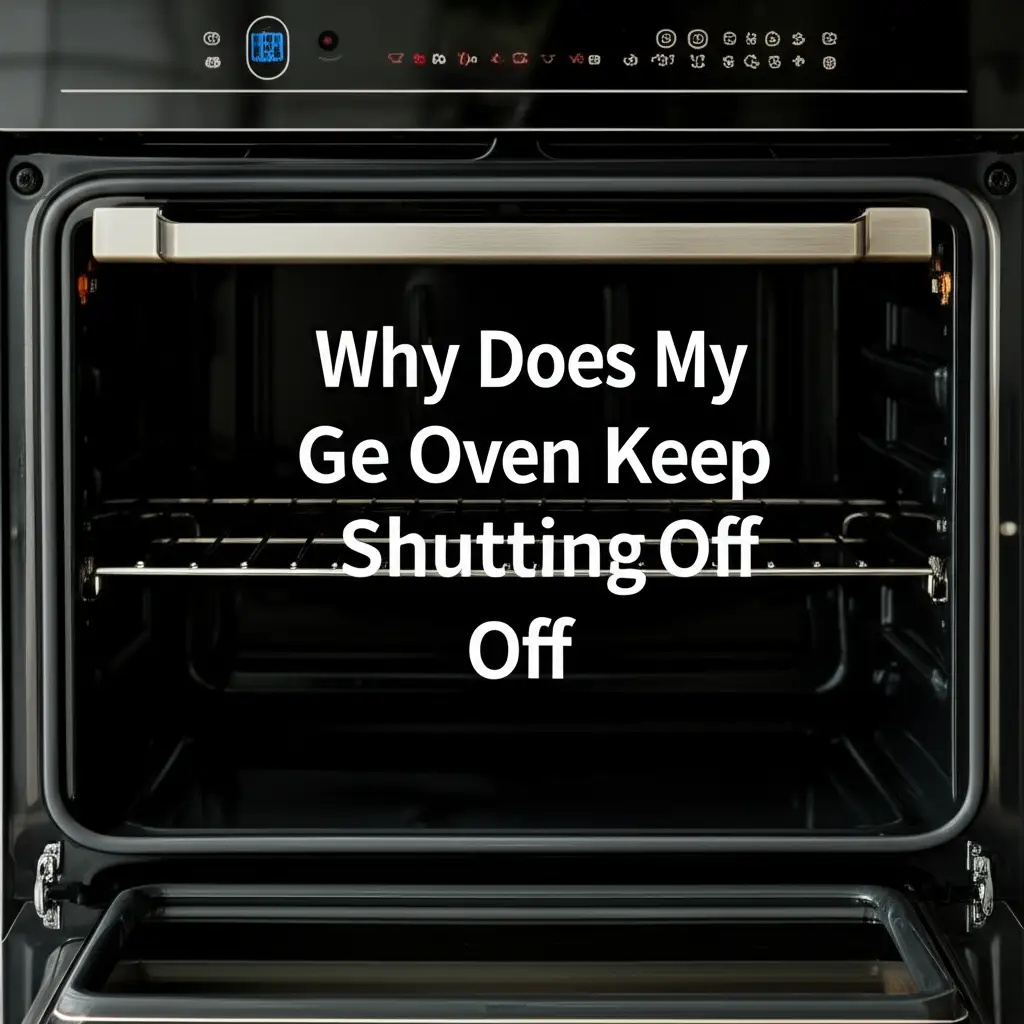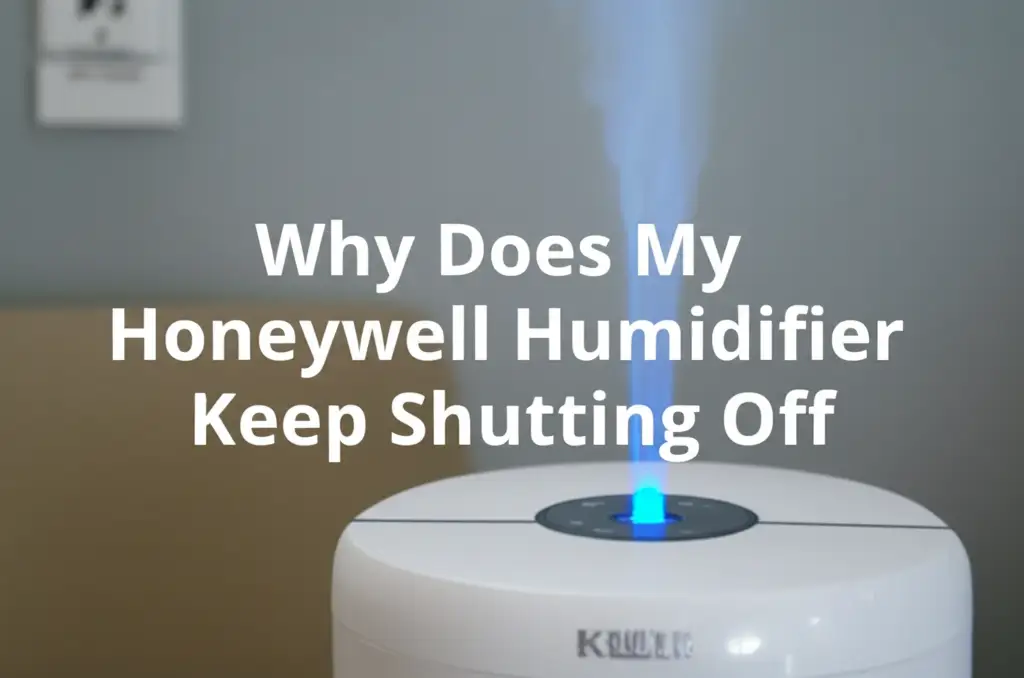· Todd Martin · Home Appliances · 13 min read
Why Does My Gas Oven Keep Turning On By Itself

Why Does My Gas Oven Keep Turning On By Itself
Imagine you are enjoying a quiet evening, then suddenly, you hear the familiar click and hum of your gas oven. You walk into the kitchen only to find it has turned on all by itself. This can be alarming and confusing. Many homeowners face this strange problem. It raises immediate safety concerns and disrupts peace of mind. I understand how unsettling this can be. It is important to know why your gas oven keeps turning on by itself. This guide will help you understand the common reasons. We will also cover steps you can take to fix the issue.
Takeaway
- Unplug your oven immediately if it turns on by itself.
- Check for faulty igniters or spark electrodes.
- Examine the control board for errors or short circuits.
- Test the thermostat and temperature sensors for accurate readings.
- Inspect the gas valve and pressure regulator for proper function.
- Look for electrical shorts or loose wiring.
- Always prioritize safety and call a professional for complex repairs.
The Direct Answer
Your gas oven keeps turning on by itself due to internal component failures. Common culprits include a faulty igniter, a defective control board, a malfunctioning thermostat, or a sticky gas valve. Electrical issues like loose wiring or a short circuit can also cause this unexpected behavior, requiring prompt investigation for safety.
Understanding Your Gas Oven’s Behavior
When your gas oven keeps turning on by itself, it is more than just an annoyance. It is a sign something is wrong. Gas ovens use a mix of gas, electricity, and mechanical parts to work. When one part fails, it can cause unusual actions. It is helpful to know how your oven normally works. This helps you spot what is out of place. Most gas ovens have a control board, a thermostat, an igniter, and a gas valve. These parts work together to heat your food.
Your oven relies on electrical signals to start the gas flow and ignition. A signal from the control board tells the gas valve to open. Then, the igniter creates a spark or heats up to ignite the gas. A sensor monitors the temperature inside. If any of these signals or parts go wrong, the oven can activate without you touching it. This is why a self-starting oven needs quick attention. We need to rule out simple problems first. Always unplug the oven before you check any parts.
Safety is the most important thing. An oven turning on by itself can be a fire hazard. It also wastes energy and can damage the oven over time. Do not ignore this problem. Understanding the typical operation helps you diagnose the issue. It also helps you explain the problem clearly to a technician. Getting to know your appliance is the first step in solving its mysteries.
Faulty Igniter or Spark Electrode
One common reason your gas oven keeps turning on by itself is a problem with the igniter or spark electrode. The igniter is a vital part of your gas oven. It creates the heat or spark needed to light the gas. If it is faulty, it might try to ignite randomly. This causes the oven to seem like it is turning on without input. Sometimes, the igniter can partially short out. This sends signals to the gas valve when it should not.
There are two main types of igniters in gas ovens: glow bar igniters and spark igniters. A glow bar igniter slowly heats up until it is hot enough to light the gas. If it fails, it might cycle on and off improperly. A spark igniter, found in many newer models, creates a continuous spark until the gas ignites. If the spark electrode is dirty or damaged, it can cause constant sparking. This action often tricks the oven into thinking it needs to start. You might hear a clicking sound when this happens. This is the sound of the electrode trying to spark.
Checking the igniter involves looking for visible damage or discoloration. A healthy glow bar igniter will glow bright orange. If it is dull or spotty, it may be failing. For spark igniters, check if the ceramic insulator is cracked or if there is debris around the electrode. A professional can test the igniter’s resistance. This determines if it is operating within the correct range. If you notice your gas oven goes out when you release the knob, this might also be related to ignition or gas supply issues. Understanding the igniter’s role is key to troubleshooting.
Issues with the Oven’s Control Board
The control board is the brain of your gas oven. It sends signals to all other components, including the igniter, gas valve, and temperature sensors. If the control board is faulty, it can send incorrect signals. This might tell the oven to turn on even when you have not pressed any buttons. A common cause is a power surge. It can damage the delicate circuits inside the board. Over time, components on the board can also wear out.
Signs of a failing control board include erratic behavior beyond just turning on by itself. You might see strange error codes on the display. Buttons on the control panel might not respond or respond incorrectly. The oven might also have trouble maintaining temperature. Sometimes, the issue is not the board itself, but rather a short circuit on the board or in the wiring leading to it. This can cause phantom signals. It tricks the oven into starting.
Checking the control board is more complex. You need to carefully inspect it for visible burn marks or damaged components. However, often the damage is internal and not visible. If you suspect the control board is the problem, it is best to have a qualified technician diagnose it. They have special tools to test the board’s functions. Replacing a control board can be expensive. However, it is often necessary to fix the problem safely. A faulty control board might also be why your gas oven keeps tripping the circuit breaker, indicating an electrical fault within the system.
Thermostat Malfunctions and Temperature Sensors
The thermostat and temperature sensor work together to control your oven’s heat. The temperature sensor measures the current oven temperature. It sends this data to the thermostat or control board. The thermostat then decides if the oven needs to heat up or cool down to maintain the set temperature. If either of these components malfunctions, the oven might turn on unexpectedly. It may misinterpret temperature readings. For example, a faulty sensor might incorrectly tell the control board the oven is too cold. This prompts the oven to start heating.
A common issue is a sensor covered in food debris or grease. This can block accurate readings. Cleaning the sensor can sometimes fix the problem. The sensor usually looks like a small metal probe inside the oven cavity. If your gas oven goes out when you close the door, a faulty door sensor linked to temperature regulation could also be a factor. A damaged sensor wire can also cause erratic readings. This leads to the oven turning on by itself.
The thermostat itself can also fail internally. It might have a short circuit that continuously activates the heating cycle. You might notice inconsistent cooking results if the thermostat is bad. Foods might burn or remain undercooked. Testing these components usually requires a multimeter. This tool measures electrical resistance. A professional technician can perform this test accurately. They can determine if the sensor or thermostat needs replacement. Replacing a faulty temperature sensor or thermostat is usually a straightforward repair.
Defective Gas Valve or Pressure Regulator
A gas oven needs a steady, safe supply of gas to work. The gas valve controls the flow of gas into the burner. The pressure regulator ensures the gas pressure is correct. If either of these components fails, it can cause the oven to turn on by itself. A gas valve might stick in an open or partially open position. This allows gas to flow when it should not. Even a small leak can trigger the igniter to try and light the gas. This makes the oven seem like it is activating on its own.
A faulty gas valve can also lead to gas odors. This is a serious safety concern. If you smell gas, ventilate your home immediately. Turn off the gas supply to the oven. Do not use the oven until a professional inspects it. The pressure regulator makes sure the gas flows at a safe and consistent pressure. If it fails, the gas flow can become erratic. This might confuse the oven’s safety systems. It may trigger an ignition attempt.
Diagnosing problems with the gas valve or pressure regulator is complex. It requires specialized knowledge and tools. You should never try to repair these parts yourself. Gas leaks are extremely dangerous. They can cause fires or explosions. If you suspect an issue with the gas supply or valve, contact a qualified appliance repair technician or your gas company right away. They can safely test the components. They can also perform necessary repairs. For more insights into gas supply issues, you can also read about why does my gas oven pilot light work but no flame.
Electrical Problems and Wiring Concerns
Electrical issues are a frequent cause for appliances to behave unexpectedly. Your gas oven is no exception. A loose wire, a damaged insulation, or a short circuit can send phantom signals to the oven’s components. These signals might trick the oven into thinking it needs to start. Wires can become loose over time due to vibrations or heat exposure. Rodents can also chew on wires, causing damage.
A short circuit happens when electrical current flows along an unintended path. This can be caused by frayed wires touching metal or another wire. When a short occurs, it can trigger various oven functions, including the igniter or the main control relay. Sometimes, the problem is with the oven’s power outlet itself. A loose outlet or one with internal damage can lead to intermittent power issues. These issues might make the oven act erratically. You might notice flickering lights or other electrical anomalies in your kitchen.
Before checking electrical components, always unplug the oven from the wall outlet. If it is hardwired, turn off the circuit breaker that supplies power to the oven. Visually inspect all accessible wiring for signs of damage, such as scorch marks, exposed copper, or cuts. Tighten any loose connections you find. However, remember that many electrical issues are hidden inside the oven’s casing. If you are not comfortable with electrical work, it is always safer to call a certified electrician or appliance technician. They have the expertise to safely diagnose and repair electrical faults. They can prevent further damage or safety risks.
Safety Tips and When to Call a Professional
When your gas oven keeps turning on by itself, safety must be your top priority. This is not a problem to ignore. A malfunctioning gas appliance poses serious risks. These risks include gas leaks, carbon monoxide poisoning, and fire. The very first step you should take is to cut off the power. Unplug the oven from its electrical outlet immediately. If you cannot reach the outlet or if the oven is hardwired, turn off the corresponding circuit breaker at your home’s main electrical panel. Next, turn off the gas supply to the oven. This is usually done by turning a small valve located behind or near the oven.
Never try to force parts or bypass safety features. If you smell gas at any point, evacuate your home. Then, call your gas company and the fire department from a safe distance. Do not use electrical switches or phones while still inside. If you are not confident in your ability to diagnose or fix the problem, do not try. Many internal oven components carry high voltage even when unplugged. Gas lines require specific tools and training to handle safely.
You should call a professional appliance repair technician if:
- You cannot identify the problem after basic checks.
- The issue involves gas lines, the gas valve, or the pressure regulator.
- You suspect a faulty control board or complex electrical wiring issues.
- You are uncomfortable performing any of the diagnostic steps.
- The problem persists after your attempts to fix it.
A certified technician has the experience, tools, and knowledge to diagnose and repair your gas oven safely and effectively. They can replace faulty parts, ensure proper gas flow, and check electrical connections. Investing in professional repair ensures your oven works correctly and safely. Regular maintenance, such as cleaning your gas oven inside, can help prevent some future issues. Always put your safety first.
Frequently Asked Questions
Is it safe if my gas oven turns on by itself?
No, it is not safe if your gas oven turns on by itself. This indicates a serious malfunction. It creates potential hazards like gas leaks or fire. You must immediately unplug the oven and turn off its gas supply. Call a professional for proper diagnosis and repair as soon as possible.
What should I do first if my gas oven spontaneously turns on?
Your first action should be to ensure safety. Unplug the oven from the electrical outlet. If you cannot reach the plug, turn off the circuit breaker for the oven at your home’s main panel. Also, turn off the gas supply valve behind the oven.
Can a dirty oven cause it to turn on by itself?
A very dirty oven can cause some issues, but it is unlikely to directly make it turn on by itself. Excessive grease or debris might interfere with temperature sensors or wiring. However, the primary causes are usually electrical or component failures. Keeping your oven clean can prevent other problems.
How much does it cost to fix a gas oven that turns on by itself?
The cost to fix a gas oven that turns on by itself varies. It depends on the faulty part and labor rates in your area. A new igniter might cost $100-$300. A control board can be $200-$600 or more. Professional diagnosis fees usually apply before repair costs.
Can I repair my gas oven myself?
You can perform simple checks like unplugging the oven and checking easily accessible wires. However, most repairs that cause an oven to turn on by itself, such as control board or gas valve issues, are complex. They involve gas and electricity. For safety, professional repair is strongly recommended.
What is the lifespan of a gas oven’s control board?
The lifespan of a gas oven’s control board can vary. It often ranges from 5 to 15 years. Factors like power surges, frequency of use, and environmental conditions can affect its longevity. Signs of failure include erratic behavior or error codes on the oven display.
Conclusion
Finding your gas oven turning on by itself is a troubling issue. It points to underlying problems within its complex system. As we have discussed, reasons range from a faulty igniter or spark electrode to a malfunctioning control board. Issues with the thermostat, temperature sensors, or even the gas valve itself can also be culprits. Electrical concerns like loose wiring or a short circuit are also common. Understanding these potential causes helps you identify the problem. Most importantly, it helps you know when to seek professional help.
Prioritizing safety is paramount. Always disconnect power and gas to the oven before any inspection. If you ever smell gas, leave your home immediately and call emergency services. While some simple checks are possible, complex repairs involving gas lines or intricate electrical components require an expert. Do not hesitate to contact a qualified appliance repair technician. They have the necessary tools and knowledge to diagnose and safely fix the issue. Ensuring your gas oven works properly is essential for kitchen safety and peace of mind. Regular maintenance and prompt attention to unusual behavior will keep your appliance running smoothly.
- gas oven problems
- oven troubleshooting
- appliance repair
- kitchen safety
- oven igniter





